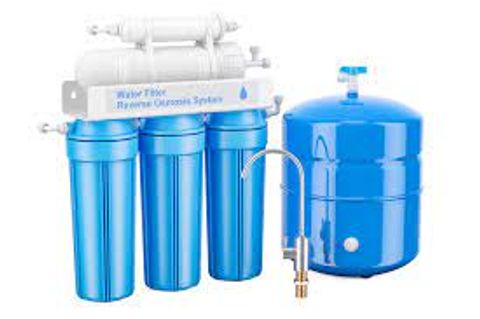Mental Health Tips & Insights: Strategies for Selecting a Transformative Retreat
In recent years, mental health retreats have become increasingly popular as a way for individuals to step away from daily stress, reset their routines, and focus on personal wellbeing. These retreats often combine therapeutic practices, wellness activities, and community support in environments designed to promote healing and reflection.
The concept exists because traditional mental health care, such as therapy sessions or medication, may not always provide the immersive experience some people seek. Retreats offer structured programs that combine holistic approaches like mindfulness, yoga, nutrition, counseling, and outdoor activities. They are not replacements for clinical treatment but can complement other forms of care by providing space for rest, self-discovery, and coping strategies.
Selecting the right retreat, however, requires careful thought. With many options available—from meditation-focused getaways to structured clinical programs—it is important to understand what makes a retreat transformative and how to choose one that aligns with individual needs.

Importance
Mental health is a global concern. According to the World Health Organization (WHO), cases of depression and anxiety have increased significantly in recent years, particularly after the COVID-19 pandemic. Many people feel overwhelmed by work, relationships, financial pressure, or global uncertainty.
Retreats can help address these challenges by:
-
Providing a safe environment: Retreats often take place in peaceful settings away from daily stressors, creating space for reflection.
-
Encouraging healthy routines: Structured schedules with balanced meals, movement, and rest promote healthier habits.
-
Building coping skills: Workshops and guided sessions teach practical strategies for managing stress, anxiety, and emotional challenges.
-
Supporting community and connection: Retreats bring together people with similar goals, helping reduce feelings of isolation.
-
Complementing therapy: For individuals already working with a therapist, retreats can reinforce strategies in a supportive environment.
Who does this matter to?
-
Individuals experiencing burnout: Professionals and caregivers often seek retreats to manage stress and restore energy.
-
People exploring self-growth: Those seeking mindfulness, emotional healing, or personal development.
-
Families or couples: Some retreats are designed to strengthen communication and relationships.
-
Health-conscious travelers: Individuals looking for wellness-centered vacations that also support mental wellbeing.
Recent Updates
The past year (2024–2025) has brought new developments in the retreat space:
-
Hybrid retreats (2024): Many centers now offer a mix of in-person and virtual programs, making retreats more accessible for people unable to travel.
-
Trauma-informed retreats: There is growing recognition of the importance of trained staff who understand trauma-sensitive approaches. This trend expanded significantly in 2024.
-
Integration of technology: Some retreats now use apps for journaling, meditation, or tracking wellness habits, blending digital tools with in-person care.
-
Eco-conscious practices (2024): More retreats emphasize sustainability, using organic meals, eco-friendly facilities, and nature-based therapies.
-
Specialized programs: In 2025, retreats tailored for frontline workers, teachers, and caregivers gained visibility, addressing profession-specific stress.
-
Scientific backing: Studies published in 2024 highlighted that structured retreats can significantly improve resilience, emotional regulation, and overall wellbeing when combined with ongoing care.
Graph: Retreat Trends in 2024–2025
| Trend | Impact |
|---|---|
| Hybrid (in-person + online) | Greater accessibility worldwide |
| Trauma-informed care | Safer experiences for participants |
| Digital integration | Personalized support through apps |
| Eco-friendly design | Alignment with environmental values |
| Specialized retreats | Programs tailored to specific communities |
Laws or Policies
While retreats are not always regulated like hospitals or clinics, laws and policies affect how they operate:
| Region | Relevant Policy/Regulation | Effect on Mental Health Retreats |
|---|---|---|
| United States | Mental Health Parity and Addiction Equity Act (MHPAEA) | Ensures insurance coverage parity for mental health services, but most retreats are self-pay unless medically supervised. |
| European Union | General Data Protection Regulation (GDPR) | Retreats collecting personal or health data must ensure strict privacy and data handling compliance. |
| Australia | National Mental Health Strategy | Encourages mental wellbeing programs, some of which overlap with retreat-style care. |
| India | Ayushman Bharat initiative | Expands access to wellness and preventive health services, supporting holistic programs. |
| Global | WHO mental health action plans (2023–2030) | Promote community-based care and awareness, indirectly supporting the rise of retreats. |
Policies also affect how retreats advertise and position themselves. For example, programs cannot claim to “cure” mental illnesses unless medically verified. Instead, retreats are recognized as supportive environments that encourage holistic health.
Tools and Resources
Choosing the right retreat requires research and preparation. Fortunately, there are reliable tools and resources to guide the process:
-
Retreat Directories & Platforms
-
Retreat Guru and BookRetreats: Online platforms listing retreats by location, focus, and cost.
-
Wellness Travel Association: Offers guidance and standards for wellness tourism.
-
-
Mental Health Resources
-
National Alliance on Mental Illness (NAMI) (U.S.): Provides information about mental health support, including retreat considerations.
-
Mind (UK charity): Offers tips on wellness activities that can complement retreats.
-
-
Apps for Preparation & Integration
-
Headspace and Calm: Meditation apps useful before and after retreats.
-
Daylio and Reflectly: Journaling apps for tracking mood and insights gained.
-
-
Self-Assessment Tools
-
Stress checklists from the American Psychological Association (APA).
-
Burnout assessment tools available through health organizations.
-
Table: Useful Tools for Retreat Planning
| Category | Tool/Resource | Purpose |
|---|---|---|
| Retreat directory | Retreat Guru | Browse and compare retreats |
| Mental health support | NAMI / Mind | Education and guidance |
| Meditation app | Calm / Headspace | Build mindfulness habits |
| Journaling app | Daylio / Reflectly | Track personal growth |
| Stress assessment | APA checklists | Evaluate need for retreat |
FAQs
Q1. How do I know if a retreat is right for me?
A retreat may be helpful if you are experiencing stress, burnout, or want time to focus on mental wellbeing. However, retreats are not substitutes for therapy or medical treatment. If you have a diagnosed condition, consult a healthcare provider first.
Q2. Are mental health retreats covered by insurance?
In most cases, no. While medically supervised programs may qualify, wellness retreats are typically out-of-pocket expenses. Always confirm payment policies in advance.
Q3. What should I look for in a transformative retreat?
Key factors include staff qualifications, program structure, safety policies, location, and whether the retreat aligns with your goals (e.g., mindfulness, recovery support, stress management).
Q4. Can retreats replace therapy or medication?
No. Retreats are designed to support mental wellbeing but are not replacements for medical treatment. They may complement therapy by reinforcing coping strategies in a focused environment.
Q5. How do I prepare for a retreat?
Plan ahead by clarifying your goals, packing appropriately, limiting digital distractions, and informing family or friends of your schedule. Using meditation or journaling apps before attending can help ease the transition.
Conclusion
Mental health retreats are emerging as valuable spaces for individuals to pause, reflect, and reconnect with themselves in supportive settings. They exist to bridge the gap between daily stress management and long-term mental wellbeing, offering structured experiences that promote growth, rest, and resilience.
The key to making the most of a retreat lies in choosing carefully: understanding personal needs, checking program credibility, considering safety and accessibility, and aligning with available resources. With recent developments—like hybrid formats, trauma-informed approaches, and eco-conscious practices—there are more options than ever to find a retreat that resonates.
Ultimately, retreats can be transformative when selected thoughtfully. They are not about promising cures but about creating space for meaningful reflection, healthier habits, and renewed perspective. With the right preparation, tools, and awareness of policies, individuals can make informed choices and take steps toward a more balanced, mindful future.







